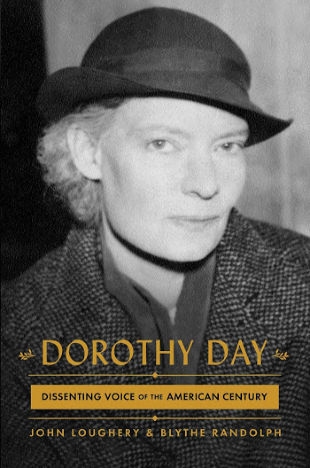"In 2015, Pope Francis I, addressing the US Congress, named Dorothy Day as one of four morally exemplary Americans — along with Abraham Lincoln, Martin Luther King, Jr., and the Trappist monk and contemplative Thomas Merton — whose lives and ethical struggles offer a different way of seeing the world," write Pulitzer Prize finalist John Loughery and biographer Blythe Randolph in this first full-length biography of Day (1897-1980) in 40 years.
With perseverance and craft, they bring together the diverse strands of her paradoxical personality as a countercultural critic of war, an often conflicted mother, a founder of the Catholic Worker publication and movement, a devout Catholic who attended Mass every day of her adult life, a fierce advocate and caregiver for the poor and the homeless, an anti-Establishment radical, a pacifist, a committed activist who spent time in prisons, and a constant crusader against injustices of all types.
At her death in1980, historian David O'Brien called Dorothy Day "the most influential, interesting, and significant figure in the history of American Catholicism." In this book, Loughery and Randolph put the accent on her spirituality which was manifested in her protests, her inner life, and her feisty character. Day's Catholic faith as a lay person looms large in the hearts and minds of those who have been waiting many years for her canonization as a saint.
In this era of chaos, anxiety, and polarization, Dorothy Day: Dissenting Voice of the American Century offers us the intertwined gifts of resistance, loving our enemies, and getting in step with what she called "bringing about a revolution of the heart."
